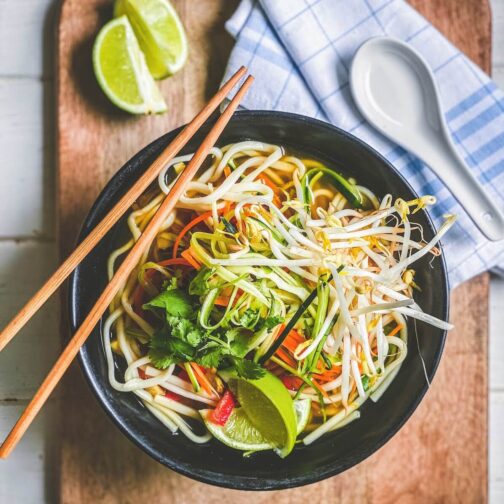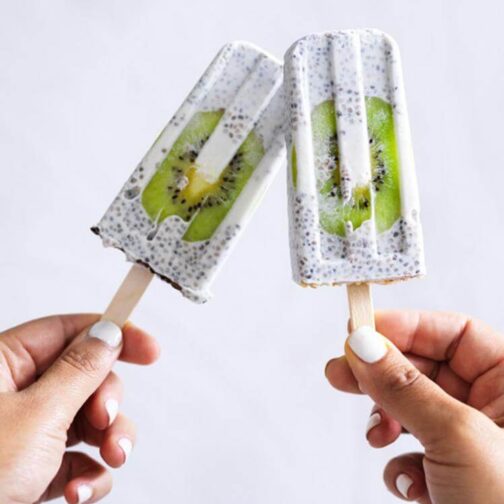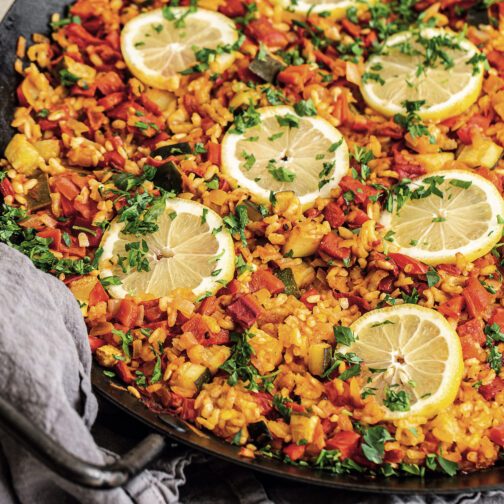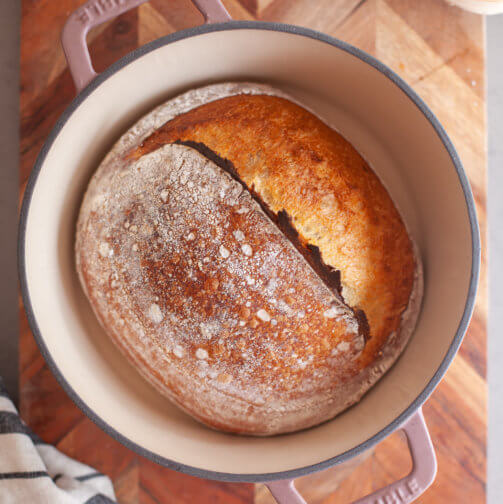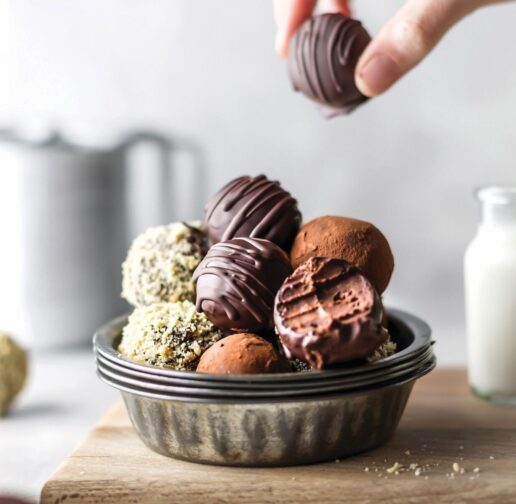
There’s a move to revive ancient practices that use entheogenic plants – ayahuasca, psilocybin, mescaline – but for our very modern mental health concerns.
I’ve always been fascinated with optimising my wellness because I learnt quite early that the better I care for myself, the better I can care for others and the world around me. Being mentally healthy and living well is important to every single one of us, and it starts with creating a healthier relationship with your mind.
There are many ways to describe our mental state of being, but the best one I’ve come across is a continuum: a universally complex, non-binary, and certainly not exclusive continuum. At one end is your mental health, and this represents the times in your life when you have felt fulfilled, at peace, and thriving. Then there’s the middle ground, which describes the stints when you were coping, surviving, or perhaps struggling. At the other end sits a range of mental illnesses that affect your mood, thinking and behaviour and include clinical depression, anxiety, bipolar, dementia, schizophrenia, post-traumatic stress, eating disorders, and obsessive-compulsive disorder, among others. Throughout the duration of our lives, we can move back and forth along this continuum, depending on circumstances.
THE PSYCHEDELIC RENAISSANCE
When it comes to managing, treating, and caring for our mental wellbeing, the use of entheogen plant medicine has been piquing interest in modern medicine circles over the past three decades. Affectionately called the ‘Psychedelic Renaissance’, this involves the use of naturally occurring, psychoactive substances in plants that help create temporary states of altered perception. I’m intrigued, yet justifiably cautious like many. I wanted to learn more, which led me to stumble across an entheogen plant medicine service that facilitates journeys of self-discovery and transformation for the purpose of elevating wellbeing.
Research published in The American Journal of Psychiatry in 2020 concluded that randomised clinical trials support the efficacy of psilocybin in the treatment of depression and cancer-related anxiety, while research into the use of ayahuasca in the treatment of psychiatric disorders is preliminary, although promising. Earlier research published by the Canadian Medical Association Journal in 2015 looked at the use of psychedelic substances for treating mental illness and concluded, “Preliminary findings show some successful results for these treatments, with significant clinical improvements and few – if any – serious adverse effects.”
“It’s an interesting time for the intersection of ancient plant medicine traditions, contemporary science, and spirituality,” says Jonathan de Potter, the founder of Behold Retreats. “And we’re only getting started.” Offering ayahuasca (a South American entheogenic brew), psilocybin (from mushrooms), and mescaline (from San Pedro cactus) plant medicines, Behold Retreats aims to expand the options of natural remedies available to people. “Clinical researchers in the US, UK, and Europe through prominent institutions have conducted extensive studies on psychedelics, illuminating the many benefits for mental wellbeing and personal growth. Plant medicine promotes neurogenesis, the creation of new neurons and new neuronal connections. You can think of it as healing your brain like any other organ. The results show improved cognition, clarity of thinking, behaviour, mood, consciousness, life satisfaction, sense of purpose, social connectedness, and more motivation to care for yourself physically, emotionally, and mentally,” Jonathan explains.
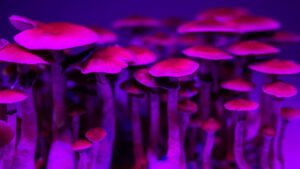
EXPLORING ENTHEOGENS
Previously, Jonathan lived in Hong Kong where he led a team of 100 people in digital strategy and transformation work. He was in desperate need of some time off so took a sabbatical year to travel through South America where he discovered ayahuasca plant medicine at a retreat in Peru. “The experience itself was overwhelming, as I was poorly prepared and didn’t really know what to expect,” he says. He also says the experience offered him humbling lessons, past experiences, and explanations for why he was the way he was, which he concedes was sometimes easily frustrated and impatient. However, he adds, “After the retreat, I wasn’t really supported in my own integration, so I kind of went ‘back to normal’, to be honest.”
“Since then, I’m pleased to say that I found the right guidance to continue my personal work with plant medicine, and it’s helped me immensely,” he continues. “To be happier, more productive, joyous, loving, patient, empathetic … I had a great life before, but the reality is, it’s hard to imagine how much better life can be, because we are limited by our subjective experience. Once we experience an expanded, euphoric, and blissful state, we can make steps towards these states of consciousness as part of everyday life – without the plants!”
Jonathan found that many others had similar experiences to his own — they were underprepared for their experiences and insufficiently guided afterwards. Passionate about raising awareness on the benefits of plant medicine therapy and its potential to improve wellbeing and mental health, Jonathan launched Behold Retreats in 2020. They provide curated programs incorporating a plant medicine retreat in destinations like Costa Rica, the Netherlands and Peru in safe, legal, and supported settings. “We’ve invested in a high-quality medical screening process, so that we can minimise the risks,” he shares.
“The majority of this work is being done underground or in an unregulated environment and in faraway countries, so safety isn’t always a top priority unfortunately. With the right screening, plant medicine is safe, but without, it can be dangerous.” Jonathon also believes in a holistic experience to help people maximise the benefits, which includes educational materials for guided self-inquiry, coaching or therapy, and the support of expert healers and facilitators.
CAUTION AND CONTEXT
Despite the growing evidence highlighting the therapeutic efficacy of administering human-grade psychedelic compounds in controlled clinical settings, paramount to the conversation is the issue of safety and risks. The Australian and New Zealand Journal of Psychiatry in 2019 reported mild side effects in clinical settings including dose-related transient headaches, anxiety, confusion, nausea, and vomiting. More serious side effects followed recreational use in uncontrolled settings, such as acute panic, which can lead to dangerous behaviour, the exacerbation or manifestation of psychiatric conditions, and the presentation of long-lasting perceptual disturbances.
“Generally speaking, plant medicine is safe, unless substances are mixed (alcohol and plant medicine is a no-no), are used in the wrong context (like at a party or at a concert), and with lack of or poor medical screening. There can certainly be challenging experiences, there is no shying away from that, but with the right expert guidance and in the right context, these experiences are safe – the science has shown that. There is a very small percentage (say one in 1,000) that can be substantially more challenging, which is why it’s important to work with experts,” explains Jonathan.
A little behind our friends in the US, UK and Europe, Australia is on the cusp of its first trial exploring psilocybin-assisted therapy for anxiety and depression among terminally ill patients. There’s also a newly established charity, Mind Medicine Australia, which is aiming to negotiate Australia’s regulatory framework to have psychedelics reclassified from the most restrictive drug category to one that accommodates prescription medicines. “My hope for the future is expanded access and democratisation. At the moment, high quality plant medicine experiences are out of reach for the majority,” says Jonathan. He adds, “There is a higher degree of receptivity than we expected. It’s clear that our current solutions are falling short, and guess what? People want to be well.”
***
Convincing the medical world and the community at large that entheogen plant medicine is a safe and viable approach for mental health treatment and management is an ongoing pursuit. It’s one that raises a lot of curly questions regarding risks, legislation, and regulation – but one that also potentially offers an alternative to current treatments. It’s a conversation I’ll be paying close attention to as the worlds of modern medicine and ancient plant practices continue their tango.



